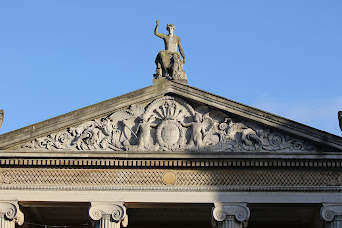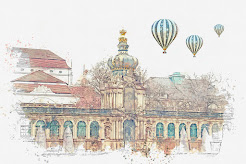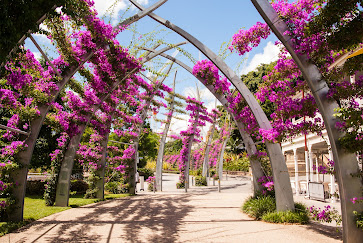There have always been collectors in our societies. Scholars date the establishment of the earliest museums during the 17th and 18th centuries. The Ashmolean Museum, in Oxford, opened its doors in 1683. The Louvre, British Museum and Uffizi gallery all opened their doors during the 18th century.
Detail of a carving above the main entrance to the Ashmolean Museum
photo credit: Ruth Swan, Shutterstock 168202407
Before the advent of the modern museum though, there existed cabinets of curiosities. Private collections of art, technology, minerals, taxidermized animals and dried plants. These objects were put on display so that they could deepen the viewers' knowledge of the world. Earlier than this, Roman soldiers were known to display the booty they had won during military conquests. It seems a natural human instinct to surround ourselves with that which we admire, either for its beauty or its cleverness.
Cabinet of Curiosities
photo credit: Mathew Hollinshead, Shutterstock 450615241
As our civilizations have evolved, our traditional societal structures have been dismantled.
The French philosopher, Georges Bataille, is quoted as saying: "the origin of the modern museum, is linked to the development of the guillotine."
The Louvre, which was built as a palace fortress for the French Monarchy, was reopened as an art gallery on August 10, 1793 — one year after the French Revolution. This was a powerful symbol that in modern France, there would be equal rights for all and equal access to the heritage of the nation.
The Louvre in Paris, France
photo credit: Bear Photos. Shutterstock. 1308160312
Whilst it is undeniable that museums serve as important institutions for the preservation of our shared universal history, the existence of the world's most established museums oftentimes mirrors the inequality of the world's wealth distribution. Many poorer nations opt to direct their resources toward basic human needs, leaving the wealthier nations to benefit from the knowledge held within these institutions' walls. Oftentimes this knowledge was nefariously obtained through conquest and colonization.
Historically, museums have been a place for quiet contemplation. A place to view our past, so that we may understand our present. During times of adversity, I have walked the halls of museums and witnessed how previous generations overcame their own struggles. I have drawn great strength from these experiences.
The modern museum seems to be constantly surrounded by controversy. Everything from sponsorship to the repatriation of art finds its way into the news. Even so, the notion of a museum is to create the promise of permanence. A space in which we may preserve our civilization, learn from our history and look towards our futures with renewed energy and common purpose.







Comments
Post a Comment